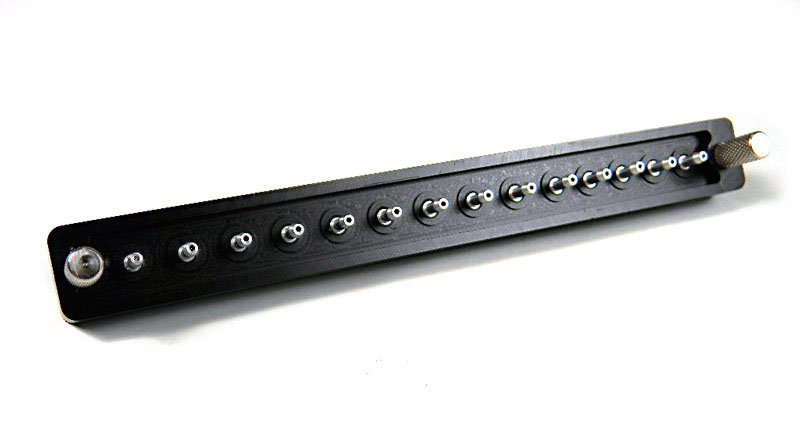The custom engineering group at global pneumatic cylinder and valve producer Aventics concentrates on small runs and one-off requests for customers. The company builds a variety of products ranging from 10- to 12-bore cylinders to fiberglass tube cylinders and their valves, all the way to very small medical valves. Four years ago, when faced with rising costs and extended lead times for prototypes, Aventics brought in a Tormach PCNC 1100 mill to speed up prototyping and custom part development services for their customers at the model shop in their USA headquarters in Lexington, KY.
"We have engineering staff on-site here and an engineering test lab [with] a model shop area where we incorporated the PCNC 1100," explains Adam Chunglo, a member of the company's engineering lab team. He takes models from their team of engineers, works up a program, and mills prototype parts using their Tormach.
"We use that to validate designs and keep testing moving so that we can improve upon what we have or what the customer is expecting," he says. Before purchasing their Tormach PCNC 1100, most of their prototyping work was outsourced.
"With our volume of prototypes and the money we were spending in a year's time on prototypes, we were able to justify getting Tormach in our lab area." Once in place, Aventics greatly sped up their ability to deliver prototypes quickly and efficiently.
"[Before getting the Tormach] we'd send a prototype off and it'd be two, four, six weeks before we got it back – and that has a price tag attached to the time. With the Tormach I can get the model, get it set up, and be back there testing it in just a couple of days. The timing is a great benefit to us."
And while Aventics does own a 3D printer, they only use it for early conceptual prototypes. But when the engineering team looks to validate and test prototypes, they turn to the PCNC 1100. "[We use our 3D printer] so we can look at it, we can put some parts to it," Chunglo explains. But as the need for testing of industrial components – which need to tolerate 150 PSI to 200 PSI – printed parts don't hold up. Aventics quality standards require they run new parts for 25 million cycles before they sign off on them.
"And that's where the Tormach comes in," states Chunglo. The company purchased their PCNC 1100 four years ago, and later upgraded to the series 3 controls and added an automatic tool-changer as well. The manufacturer of pneumatic components and systems has also leveraged their Tormach PCNC 1100 to fix, adjust, or make design changes to products from outside sources.
"When we get parts back from outside production shops and put them together, sometimes you need to make a change and reorder – which can delay a project another four weeks", Chunglo explains.
"Now, we've actually taken parts that we ordered from an outside source and put them on the Tormach, made our adjustments, and put them right back into the prototype. So we've actually fixed or adjusted things from outside sources or made design changes using the PCNC 1100."
Looking forward, Chunglo envisions the possibility of expanding their CNC machining capabilities by adding a Tormach lathe to their shop as well. "I'm hoping that I can get [our existing] oversized-engine lathe hauled out so we can get one of the new Tormach 15L Slant-PRO lathes."


